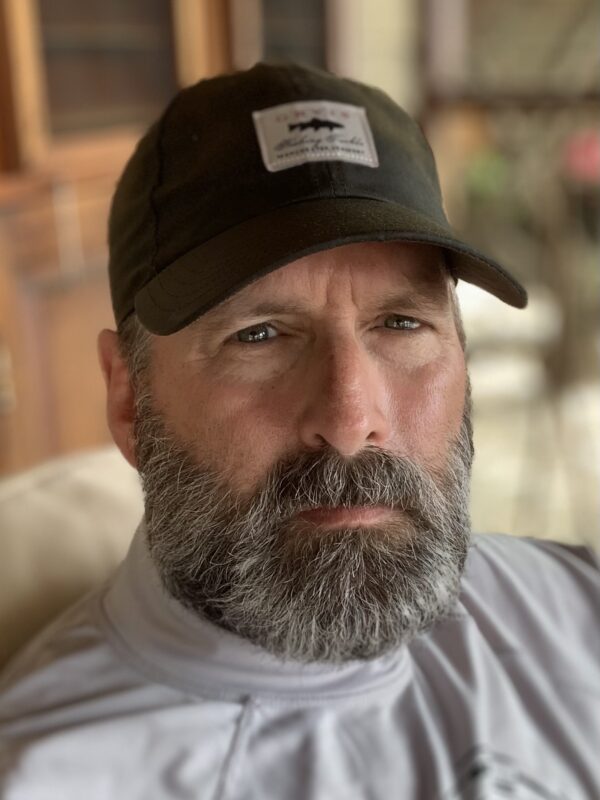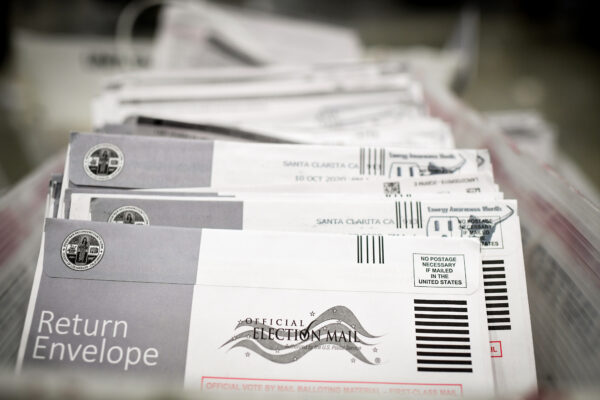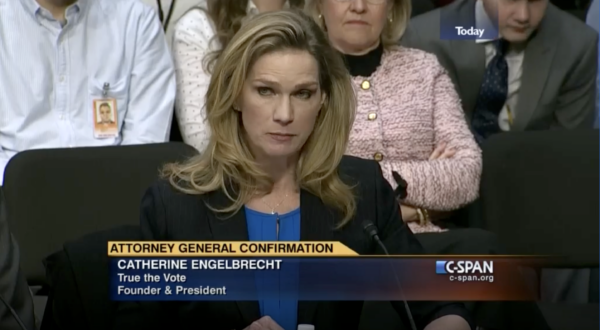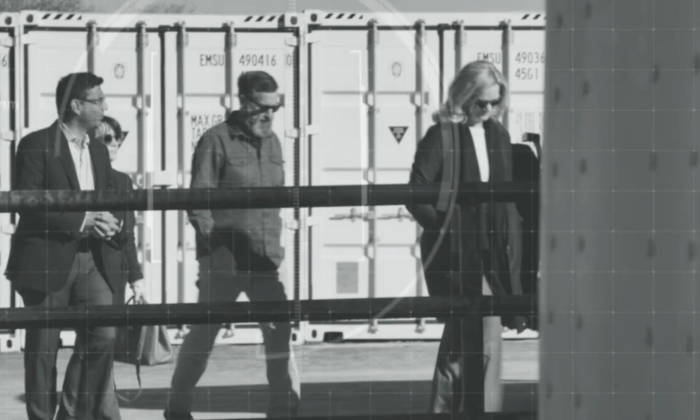Voter fraud has traditionally been a local affair in the United States, where elections are conducted by more than 3,000 counties in a decentralized system that makes mass ballot manipulation nearly impossible.
And it very much remains so, maintains Gregg Phillips. His investigation into Georgia voter fraud during the state’s 2021 U.S. Senate election runoff is featured in Dinesh D’Souza’s “2000 Mules” documentary, to be released this week.

While manning True the Vote’s voter fraud hotline during the 2020 election, Phillips said he observed local election fraud “grown to scale” as part of a ballot-harvesting scheme orchestrated by national organizations.
Across the country, “there are a thousand local insurgencies doing their own things” in defiance of state election laws, he said.
But what has happened over the past few decades, and became evident during the 2020 election, is “new money and old money, old-fashioned foundations” can “leverage fraud already in place at a local level,” Phillips said. “This is how this thing grows to scale” and can influence state and national election results.
Phillips, a former director of the Mississippi Department of Human Services and a former deputy commissioner for the Texas Health & Human Services Commission, is the managing partner and majority owner of OPSEC Group LLC, based in Birmingham, Alabama.
His company conducts voting roll and election results investigations and analysis for True the Vote (TTV), a nonprofit based in Houston founded by Catherine Engelbrecht in 2010.
For more than a decade, TTV has been training poll watchers, educating voters in election law, and lobbying to enact many of the reforms adopted post-2020.
Engelbrecht’s TTV and Phillips’s OPSEC conducted the investigation presented in the documentary by D’Souza, which is set to open in 300 theaters on May 2 and May 4.
The genesis of the investigation, which he and Englebrecht say proves large-scale, illegal vote trafficking occurred in the 2020 election, was digging into reports after manning TTV’s tip line, Phillips said.
“We started to see these anomalies, these densities,” in “precinct after precinct” in places like Milwaukee, Detroit, Atlanta, and Arizona’s Maricopa County, where voter turnout was extraordinarily high and virtually all ballots were cast for the same candidates, he said.

“Mistakes happen, but when you have 100 percent of [registered voters] voting and all for the same candidates,” there is something fishy afoot, Phillips said.
He said that people calling the tip lines from across the country reported oddities around ballot drop boxes. A common theme was seeing the same people dropping off ballots.
“There was a lot of speculation about things related to drop boxes, a lot of video around these drop boxes,” Phillips said, but it was difficult to use in trying to prove fraud.
Then he had an idea: Geospatial analysis gleaned from cellphone data.
He said that each cellphone emits a unique, identifiable signal, or “ping,” he said, all of which are “collected and amalgamated by brokers and sold.”
By collecting cellphone data, “you not only know where, but when” a phone is at different places, Phillips said. “Presuming you know the person who owns that phone, you can learn, where does he sleep? Where does he work?”

He was eager to see what analyzing cellphone “pings” around drop boxes would engender. The phone numbers can be tracked and investigators “can go back and bust out a pattern of locations before, during and after” the phone was at the dropbox, he said.
They then “refined a hypothesis that [could be tested] in Georgia” during the January 2021 runoff election for both of the state’s U.S. Senate seats.
The operation would require the purchase of a petabyte of pings. A petabyte equals 1,000 terabytes, which Phillips said is “a big, big, big thing.”
“[Engelbrecht] and her team were working on filing freedom of information requests, and she didn’t really buy into a lot of the stuff that was out there,” he said. “But she supported us, backed us all the way, when we needed more data, she went out and raised more money.”

The data were “super expensive”—millions of dollars, Phillips said. “We may be the only group left standing when this is all said and done that went out and bought 10 trillion” pings.
Once they had the data, the question was, who made 25 or more visits to a dropbox?
“What that left us with was 242 individuals who met that threshold,” Phillips said.
TTV also collected “4 to 5 million minutes” of video that also show the cellphone owners making ballot drops, he said. Those who did so 25 or more times were labeled “mules.”
The data confirmed conclusively that industrial-scale ballot harvesting was routine in Georgia, especially in the Atlanta area. Phillips said Englebrecht demanded it be checked and rechecked.
“She says over and over again, ‘Gregg, no matter what, you can’t be wrong,’” he said. “We had to put it through these quality control checks, create algorithms to pick up anomalies and kick them out. We did not want to include false positives, exclude people who should be included, and include people who should be excluded.”
“We don’t want to get ahead of ourselves,” Englebrecht said. “It takes time” to develop these analyses.
When the findings were presented to state officials in early 2021, they didn’t get the expected response. In September 2021, Georgia Bureau of Investigation Director Vic Reynolds said that since TTV would not reveal sources cited in its analysis, there was no probable cause to investigate.
“They got mad at us and sent us a letter saying no probable cause to investigate—you don’t need probable cause to investigate,” Phillips said.
“I think the greatest challenge we faced was we really believed we could get our work to a point to where it was clear there is a problem, that using our data” collected by the same technology “routinely used by law enforcement would be impetus enough for key officials to say, ‘This is something we should look into,’” Englebrecht said.
On April 25, Georgia Secretary of State Brad Raffensperger announced the state would investigate TTV’s claims and subpoenaed Englebrecht and Phillips.
One reason for Georgia’s revived interest in TTV’s 2021 investigation—and sources—was that similar subsequent geospatial investigations by Phillips had gained traction with officials in Arizona, Wisconsin, and Pennsylvania.
Phillips said they found ballot harvesting to be a local cottage industry everywhere they looked.
County by county, “the grifts are different, the collectors and the collection methods are different,” he said. “You think, how could this possibly be so coordinated? It doesn’t seem plausible that thousands of people could have been brought in to do all this stuff.”
This makes combatting fraud at the polls a “thousand-front war, a whole bunch of mini-insurgencies” that provide the infrastructure for national groups to scale up.
Phillips said he can’t name names right now. “We are being advised right now (not to make specific allegations) until we get further down the road,” he said.
But he said the groups capitalizing on local election fraud networks tend to be state chapters of national advocacy groups and foundations with grant programs that have significant influence in communities.
“I went to Dinesh and said there’s enough material here for a movie, and I’m not sure anyone else will tell the story,” Englebrecht said. “It’s very difficult in today’s environment to find people like Dinesh willing to step up to the line and say, ‘Let’s take a look at it.’”
“We both ended up being a lot more involved in this movie than we thought we would be,” Phillips said. “The next thing we know, we are front and center.”
But stay tuned, both say more is coming.
“We have two investigations that are more explosive and likely more impactful than this entire ‘mules’ thing,” Phillips said.
“There is something we haven’t spoken of publicly because we thought it was going to go in a certain direction, and now that agency is flipping the script, so we are trying to batten down the hatches,” Englebrecht said. “When it comes to this stuff, you cannot be wrong.”

No comments:
Post a Comment